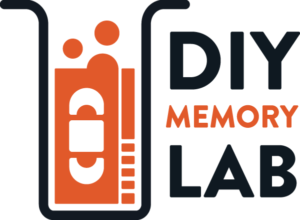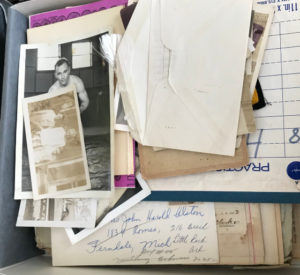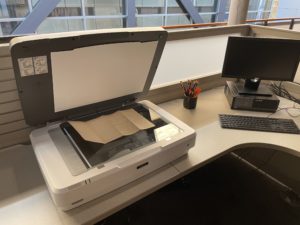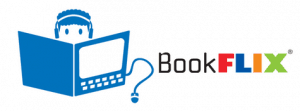calsfoundation@cals.org
Letters in the Attic: Archiving the Past at the Roberts Library
 All those letters in the attic… Or basement. Or shed. Or barn. Or under the bed.
All those letters in the attic… Or basement. Or shed. Or barn. Or under the bed.
You get the idea.
Family papers and photographs. We all have them. And for most of us, we have them stored as an unorganized mess somewhere out of the way. Many of these materials have stories of their own—how they survived from the early and mid-twentieth century to still exist in the early twenty-first century.
Nothing was special about my family. Both sides were ordinary folk. They owned mercantiles and grocery stores. They worked at service stations and in Dillard’s Housewares. They were journeyman machinists for Ford Motor Company in Detroit after World War II. But they were Arkansans by birth and they left a record of their life—in letters, deeds, Bibles, and photographs.

I have photos and letters that survived the Flood of 1927 as the waters of the White River overtook the town of Clarendon in Monroe County, Arkansas. I have photos and papers that survived the long drive south from a house at 1834 Romeo in Ferndale, Michigan, when my maternal grandfather sold most of the family’s worldly possessions (including my mother’s toys) and moved the family to Arkansas (without telling them beforehand that this was not a vacation but a permanent move). I have a ruler from my great-grandfather’s general store in Mulberry. I have a store-bought crocheted clutch full of bits of paper. I have report cards and newspaper clippings.
During the early days of the COVID-19 pandemic—when we were all stuck at home unsure what the future held—I dove into the past. I pulled all the boxes out of the closets and from under the beds. I hadn’t seen many of the items since we moved into our current house fourteen years ago. Because of my line of work as a public historian, I inherited all the old photos and papers from both sides of my family. Plus a few aunts and uncles for good measure.
What better way to teach others how to organize their personal archives than to do it myself first?
 In 2019, the Central Arkansas Library System (CALS) received a grant from the DC Public Library and the Institute for Museum and Library Service to fund the creation of a DIY Memory Lab at CALS Roberts Library. The Memory Lab’s digital scanner, which became available in May, allows patrons to scan their family photos, slides, and film negatives. This digitization process enables folks to share digital copies with friends and family instead of passing the irreplaceable originals around.
In 2019, the Central Arkansas Library System (CALS) received a grant from the DC Public Library and the Institute for Museum and Library Service to fund the creation of a DIY Memory Lab at CALS Roberts Library. The Memory Lab’s digital scanner, which became available in May, allows patrons to scan their family photos, slides, and film negatives. This digitization process enables folks to share digital copies with friends and family instead of passing the irreplaceable originals around.
Before making an appointment to use the DIY Memory Lab, visitors are encouraged to attend one of our Personal Archiving classes and/or watch this video on how to get organized. Then, they must make an appointment to use the DIY Memory Lab.
One patron has twenty photo albums from the 1980s. His photos document children growing up and pets long gone and home renovation projects.
Another patron is digitizing photo albums and scrapbooks to share with attendees at her family reunion later in the summer.
In August, the A/V Station will open and allow patrons to digitize their home movies stored on VHS, Beta, and Mini-DV/HD, as well as recorded memories on audiocassettes.
The video side of things will take longer for most patrons. If you have a VHS tape that has two hours of material, then it will take two hours to digitize it and additional time to render the file. So patrons will be able to schedule concurrent appointments on both stations to save time.
The DIY Memory Lab is now open Tuesday through Friday, and Saturday as needed, on the 3rd floor of the CALS Roberts Library. Patrons must make appointments to use the Memory Lab by going to RobertsLibrary.org/MemoryLab.
By Heather Zbinden, outreach coordinator at the CALS Bobby L. Roberts Library of History & Art




